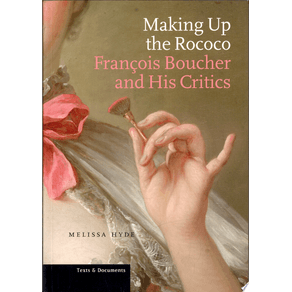In 1761, Denis Diderot ascribed the fabulous success enjoyed by Francois Boucher (1703-1770) to "the libertinage, the brilliancy, the pompons, the bosoms and bottoms" that proliferated in the artist's canvases. For while Boucher's art charmed nouveau riche buyers and titled patrons, this was not always the case with critics, and modern scholarship has done little to challenge Diderot's eventual judgment that to admire Boucher's work is to be a stranger to "real taste, to the truth, to just ideas, and to the seriousness of art." This engaging study examines the motives behind the contemporaneous critical response to Boucher's picturesque repertoire of amorous peasants, blithe aristocrats, and fanciful mythological scenes, and to the rococo style in general. The vision of t rococo (feminine, aristocratic, decadent) and of Boucher (facile, libertine, debauched) that lingers in modern art history was invented by eighteenth-century critics bent on reform, both aesthetic and political. Exploring how the discrediting of Boucher and his school intersected with cultural debates about gender and class, this account of Boucher's art should persuade critics and admirers alike to take another, more considered look.

